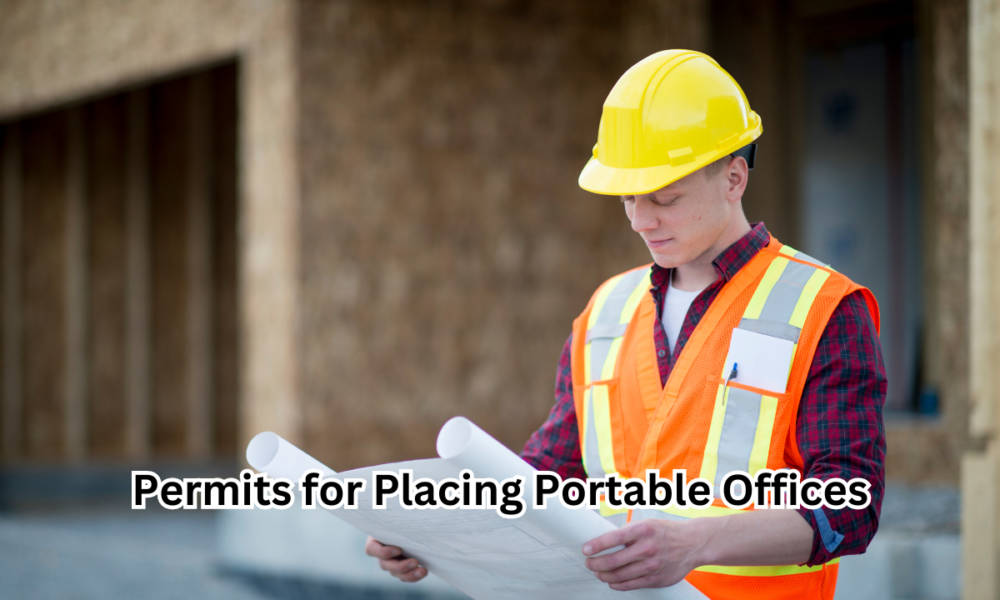Regulations and Permits for Placing Portable Offices on Jobsites
Mobile offices can help you monitor jobsites closely during temporary projects within the construction industry. Some municipalities categorize these offices as equipment within the property and don’t require a permit. Other regions have zoning laws that require organizations to obtain permits if their office buildings remain erected for several months. Here’s more information about the regulations and permits for placing a portable office on a jobsite:
Scenarios That Require a Permit
A stand-alone mobile office with a physical address usually requires a permit. If the portable office is used for several months, check with your municipality to determine if a permit is necessary. Provide the city with accurate details of the foundation type, ground leveling, location, ADA compliance, fire alarm system, and utility connections. If your office is in a residential neighborhood, contact the neighborhood association to determine if you need a permit. Local zoning requirements can also mandate a zoning variance approval when erecting a mobile office trailer. Each municipality is different, so check with the city first. High-traffic areas with nearby concerts, exhibitions, shopping centers, or sports events may also feature stricter requirements.
Permits and Regulations for Modular Office Buildings
Mobile offices are subject to zoning laws, land use permits, building permits, health and safety regulations, accessibility requirements, and more. You can verify with the city if the site is zoned for temporary buildings. Some zones don’t allow the placement of mobile office structures. The city may also require a land use permit that aligns with development regulations and local planning. In these scenarios, you must submit a site plan for review before the permit is provided. Some states require building permits for mobile offices and other portable structures. The permits involve submitting a detailed plan and require structures to meet safety and accessibility standards.
Mobile offices must meet OSHA compliance guidelines like egress, fire protection, electrical safety, and ventilation. Some jurisdictions require fire department approval. You also need additional permits to connect with the main electrical grid and existing water and sewer lines. ADA accessibility requirements like ramps, special restrooms, and ample door widths also apply. Some regions require an environmental assessment to confirm the structure doesn’t negatively impact the environment. Other regulations include waste management permits, municipal and HOA approval, time limits, signage permits, aesthetic guidelines, and insurance and bonding requirements. Check both state and federal regulations to make sure your temporary office is compliant.
How to Meet Mobile Office Placement Regulations
Since each city and municipality has different regulations, you must consult the relevant authorities before constructing your mobile office. Leading modular building suppliers can help you determine the necessary permits and regulations. You can also check with the local building department, planning commission, or zoning office to identify specific requirements. After your research, prepare the necessary documentation, including site and structural plans, and schedule an environmental assessment. Submit permit applications to the relevant agencies and wait for all approvals before you begin installation.
Once you have all the necessary permits, schedule inspections to verify the plans and installation comply with local codes and other requirements. You can proceed with the construction once everything is approved. Fix any raised issues before beginning installation and reschedule the project if necessary. You must also maintain compliance and renew your permits as needed throughout the project. If your area doesn’t require mobile office permits, there may still be local regulations and application procedures to adhere to. Working with an experienced modular building supplier or installer can help you assess these regulations before construction begins. The supplier can also help you identify and obtain all necessary permits.
Install a Custom Portable Office Today
Modular constructions have many advantages, from cost-effectiveness to quick installation and adaptability. The buildings are fabricated in a factory and delivered to the jobsite for installation. Once a project is completed, the temporary building can be disassembled and relocated to another jobsite. Contact a modular building supplier today to learn more about portable office installations.







